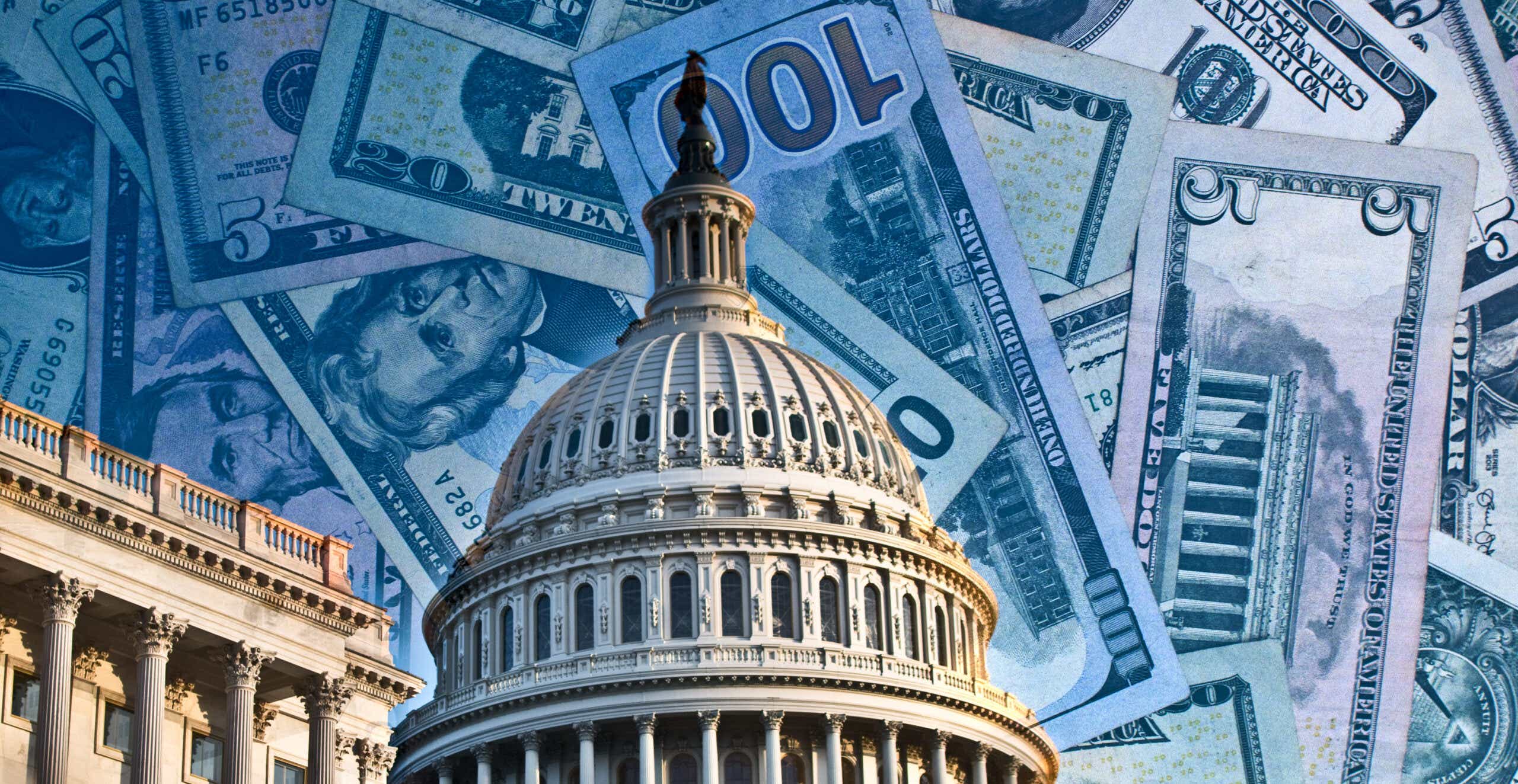Recent corporate backlash over the deadly Capitol insurrection is fueling concern over fundraising, potentially making it even more of a challenge for the party to retake the Senate in next year’s midterm election.
While some pledged to halt all political donations to both parties, a number of corporate giants — including Amazon, Morgan Stanley, Dow, and AT&T — pledged to specifically suspend donations to Republican lawmakers who opposed the certification of President Joe Biden’s victory. This included eight GOP senators such as Rick Scott, who chairs the Republican Senatorial Committee that raises money for Republican candidates nationwide.
In addition, other typically reliable resources for Republicans can no longer be counted on for robust financial support. The U.S. Chamber of Commerce said a week after the Capitol insurrection that it would halt political donations to certain lawmakers, while the NRA filed for bankruptcy and announced it would reincorporate in Texas.
More notable still is the death of GOP megadonor Sheldon Adelson, who over the course of the 2020 election donated more than $420 million to conservative candidates and political groups.
The GOP already faces a difficult Senate map in 2022, as 14 Democratic-held seats and 20 Republican ones will be on the ballot. That includes at least three open seats that Republicans will be defending because of the retirements of Pennsylvania Sen. Pat Toomey, North Carolina Sen. Richard Burr, and most recently, Ohio Sen. Rob Portman.
Meanwhile, some GOP strategists warn that the effect of the companies’ decisions could have a long-term impact. The Lincoln Project cofounder Rick Wilson doesn’t expect the corporate backlash to simply blow over — and he said Republicans shouldn’t expect it to, especially if the party doesn't purge the lawmakers who supported the undoing the election.
“It’s going to have a longer term impact because there's a very simple calculus with any firm, especially the public company, and that is, do you want to be pro-violence and treason or do you want to be not pro-violence and treason?,” Wilson told KCM.
The Lincoln Project, an anti-Trump GOP group, joined calls to impeach Trump for the second time, following the insurrection and Wilson has vowed to turn the super PAC’s attention to going after Texas Sen. Ted Cruz, one of the Republicans who supported challenging the election results. Wilson told KCM that corporations need to see “an acceptance of responsibility followed by consequences for the ringleaders,” like Cruz and Missouri Sen. Josh Hawley.
“If you're those guys,” Wilson said, referring to Cruz and Hawley. “You have to be expelled from the Senate or censured — bottom line. You don't reset it with corporate America unless you do that.”
Republican strategist Rob Stutzman echoed this sentiment, adding that there needs to be “explicit acknowledgment” from the party as a whole that some Republicans were wrong to promote the falsehood that Trump had truly won the election.
“Some of this will depend on how Trump behaves, but there's no reason to believe that he is going to, retreat — he’s never done that and so what I think is most likely is that Trump himself will continue to his followers to advance this conspiracy theory that he was the real winner of the election,” Stutzman told KCM. “And the sooner that elected Republicans can divorce themselves from that and recant that, the better off they'll be with donors and ultimately I think with voters.”
Georgia Republican strategist Chuck Clay, who is an attorney at Hall Booth Smith, told KCM that the party will need to also explicitly call out the bigotry, bias and conspiracies that culminated in the violent pro-Trump mob that stormed the Capitol. While he argues this base makes up a small minority, he said this group of rioters and insurrection supporters has no business with being associated with the Republican Party.
“You’re not going to get ahead in this country by hate and bigotry,” Clay said. “You may even cause riots. You may even take over the Capitol for a few hours, but you are not going to win the support, the faith, the following of the American people.”
At the heart of these fundraising concerns, is the uncertainty of the Republican Party’s path. Both Stutzman and Clay said whether the GOP’s fundraising woes will become a larger issue will depend on Trump’s actions and rhetoric in the coming months.
If Trump continues to make unsubstantiated claims of election fraud, Clay said the future of the Republican Party doesn’t look particularly promising, emphasizing that the GOP must remain committed to bread-and-butter issues like education and the economy.
“I want [Trump] to be concerned about his legacy — not in terms of ego, but how does that carry forward in the today in the real world, assuming that he's going be around for a number of years to come in one capacity or another, you'll want it to be a positive one,” he said.
Stutzman, meanwhile, predicted that the former president won’t back down and will continue to try to advance his election conspiracy theories. So far, Trump has done just that — in his first political activity since leaving office, he endorsed Arizona state party chairwoman Kelli Ward, an ally who backed his false claims of election fraud.
Others say it’s too early to tell if the corporate backlash will truly hurt Republicans. They note that corporate PAC money is capped at a certain amount of dollars, and as a percentage of funds raised, corporate PAC money is still a relatively small percentage of fundraising overall — not to mention that there are also other ways of corporate giving, such as individual donations.
“There are some worries for Republicans in the future, but it's not clear that it's going to be a big issue for them because we just don't know how long-lasting these things will be,” said John Fortier, a political scientist who focuses on governmental and electoral institutions.
Written and reported by Tess Bonn.









